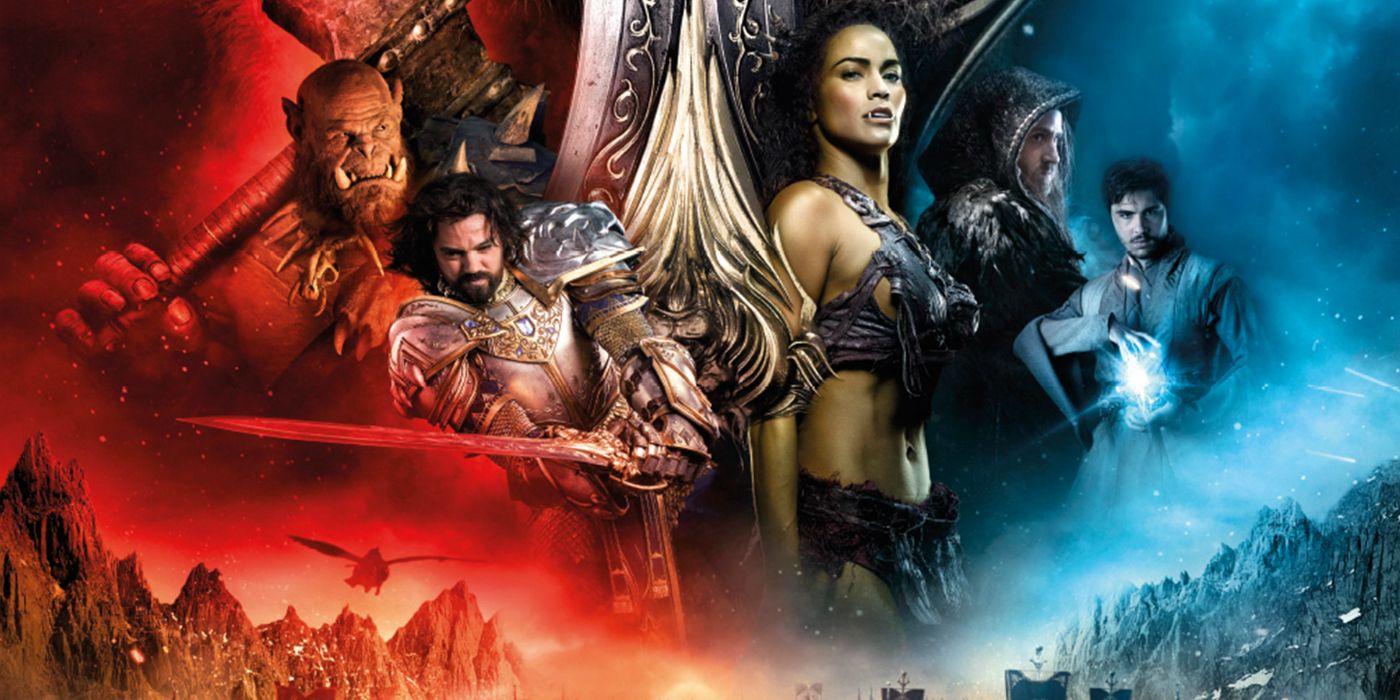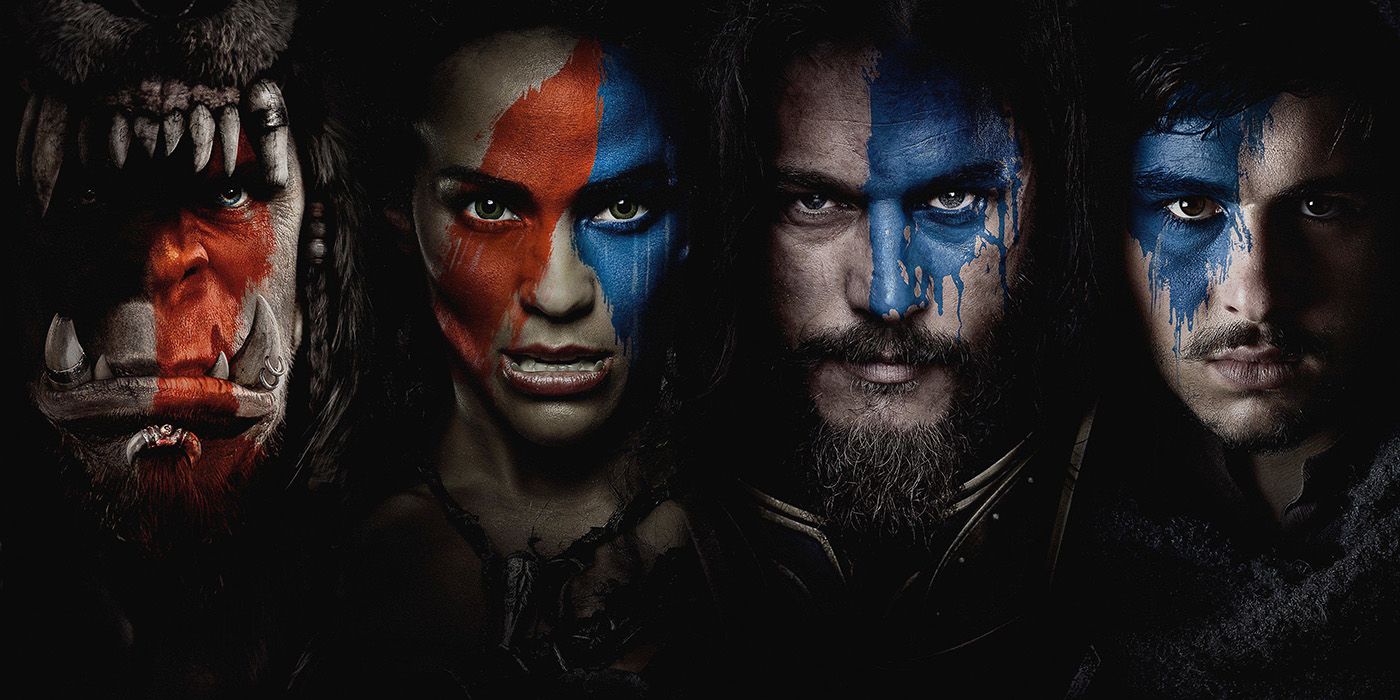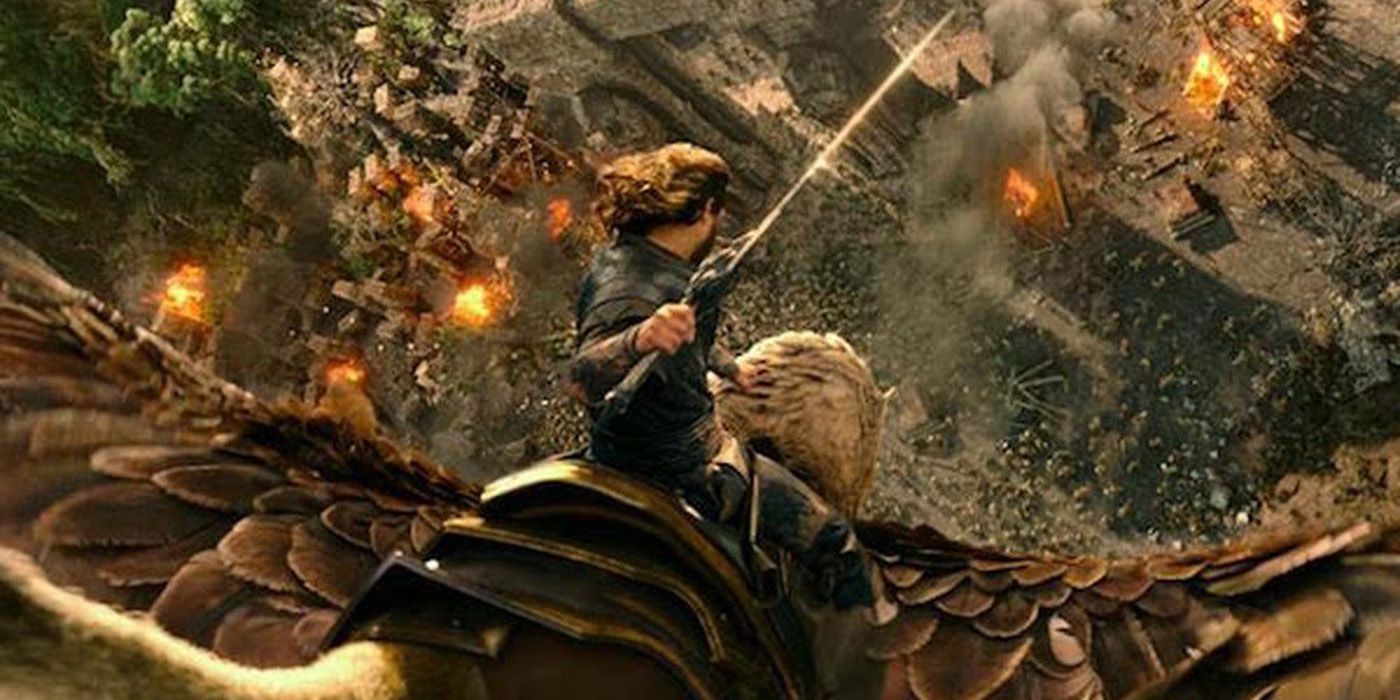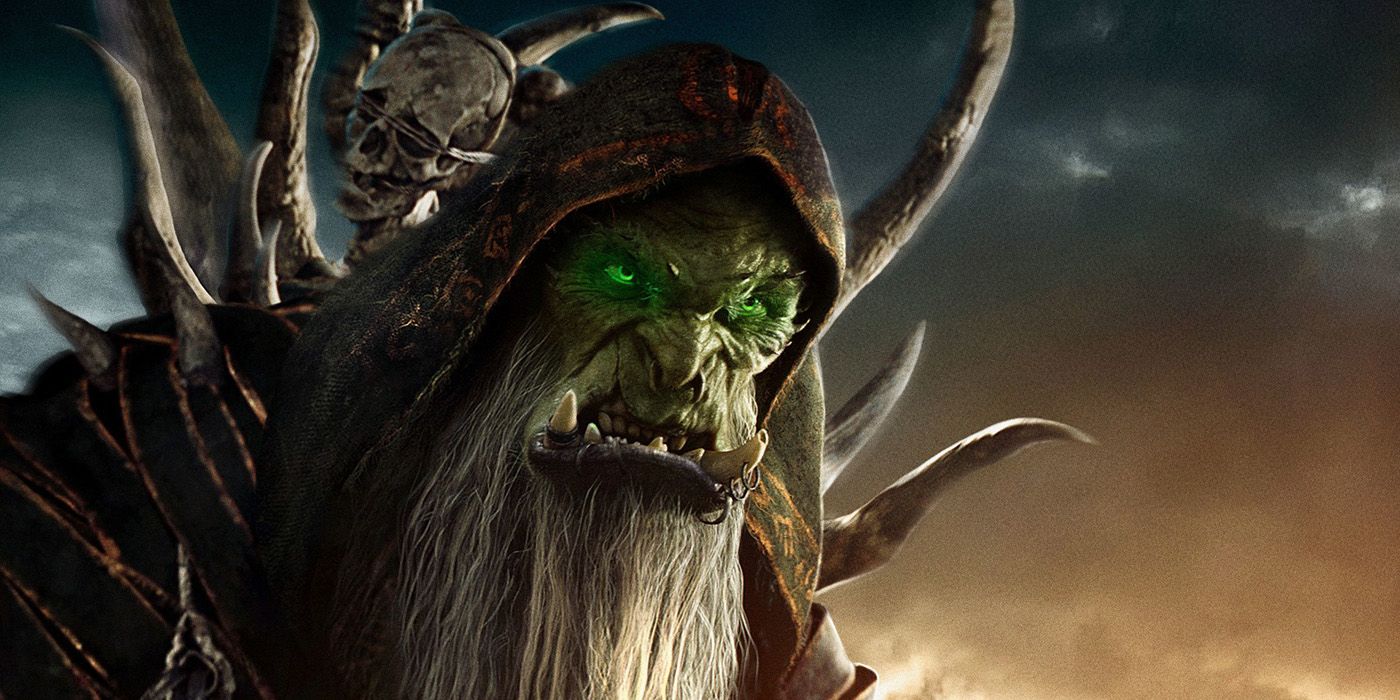
The Warcraft movie was at a disadvantage from the outset. Its first battle was chugging up the steep hill of being a video game adaptation, which it won as it is the current record holder for box office take (Detective Pikachu came so close!) The second battle was being a movie begat from the vast depth of Warcraft lore. Fans of the game frothed at the mouth to skewer it as sacrilege. Those not in the know felt like they lost track of the world before the plot even left the station. Despite the critics’ reviews or the fan reaction, Warcraft succeeded in visualizing a solid fantasy world on the big screen. It should be given a place of pride next to other fantasy movies and tv shows for all time.
Warcraft was directed by Duncan Jones and came to theatres in the summer of 2016. Although it grossed $439 million in box office and broke the record set by Prince of Persia for the highest-grossing video game adaptation six years prior, it was not enough to financially break even for the studio. Warcraft starred Travis Fimmel, Paula Patton, and Toby Kebbell as the primary good characters Lothar (human), Garona (half-human-half-orc) and Durotan (orc) versus bad guys Daniel Wu, Ben Foster, and Clancy Brown as Gul’Dan (orc), Medivh (human) and Blackhand (orc). The story is both complicated and simple at the same time, depending on how one weighs it.
RELATED: Friends Of John Wick: The Franchise That Shook The Action Genre

Like many other movies attempting to usher in a new audience to a grand and expansive world, the plot and the pace seems unwieldy. The multitude of characters, their allegiances and motivations, and the ultimate consequences of their actions proved to be too dense for most people’s first viewing. For others, the plot and drama seemed far too simple. They boiled it all down to a “green magic bad versus blue magic good” attitude. To the praise of Duncan Jones and screenwriter Charles Leavitt (who also wrote Blood Diamond), the story does have more meaningful depth than most people give it credit for.
Warcraft is about a just and fair people (the orcs led by Durotan) escaping a world destroyed by obsession and fanaticism. They seek refuge in the new world of Azeroth, for good or for ill. If only the humans of that world had a chance to communicate with the good side of the orcs first, the war would not need be. Unfortunately, there is a brutal and evil dictator (Gul’Dan) driving the orcs to conquest. He dominates and poisons their kind for his own power-hungry gain. His magic (coloured green and called fel magic) is ecologically and physically devastating, to which he knowingly uses at the expense of the lives of the orcs and their home world. For example, to fuel the means of transportation from orc world to the humans’, Gul’Dan sacrifices the lives of an entire enslaved people.

Surprised and scrambling to defend, King Llane of the humans turns to the powerful wizard Medivh to explain who the orcs are and why they are invading. Medivh wields the “blue magic” of the land of Azeroth. He, however, has been corrupted by a demon and is responsible for guiding Gul’Dan to Azeroth in the first place.
By June of 2016, Warcraft’s theatrical release, fantasy fans were thirteen years out from The Lord of the Rings Trilogy and eagerly poised to dive into the seventh season of Game of Thrones. The core Harry Potter movies finished in 2011 and its spin-off Fantastic Beasts and Where to Find Them was set to debut five months later. Netflix’s The Witcher was still three years away. The superhero cinematic universes were waging a furious war in cinemas with both Batman V Superman: Dawn of Justice and Captain America: Civil War opening in March and May, respectively. Doctor Strange was scheduled for November, just before Fantastic Beasts. Elsewise, there was not much else going for quality fantasy viewing. Warcraft should have struck a better landing in this ripe window of opportunity. Unexpectedly, it suffered under the long reaching fallout of Peter Jackson’s recent desolation.

Everyone knows The Hobbit Trilogy was a major misfire. What surprised most was the effect it had on subsequent fantasy films. No longer were moviegoers keen to swoon over vast and vibrant landscapes or patiently sponge in the broth of a hundred-thousand-word lore dump. Instead, they were pitch-fork ready to torch any CGI effects and bulldoze even the daintiest attempt at world-building.
Warcraft lost both the video game audience, whose expectations have yet to be satiated and the wider movie-going audience, who suffered fantasy fatigue. A genre that was boldly triumphed by the efforts of Peter Jackson in the early 2000s was then shriveled on the vine by his own hands. Duncan Jones made a faithful and worthy attempt to launch a Warcraft cinematic franchise. He would have succeeded had the ground of fantasy cinema not been tarnished with the salt of The Hobbit.
Critics and detractors could accuse Warcraft of being too bloated with CGI or too thin on the sensical plotting. None could accuse it of being a faulty fantasy movie. It served the genre at a time when there was not much else available and had it not been for the mushroom cloud of The Hobbit, fans would have judged it with much kinder eyes. Five years on, Warcraft rightly secures a much higher position in the ranks of fantasy movies.

